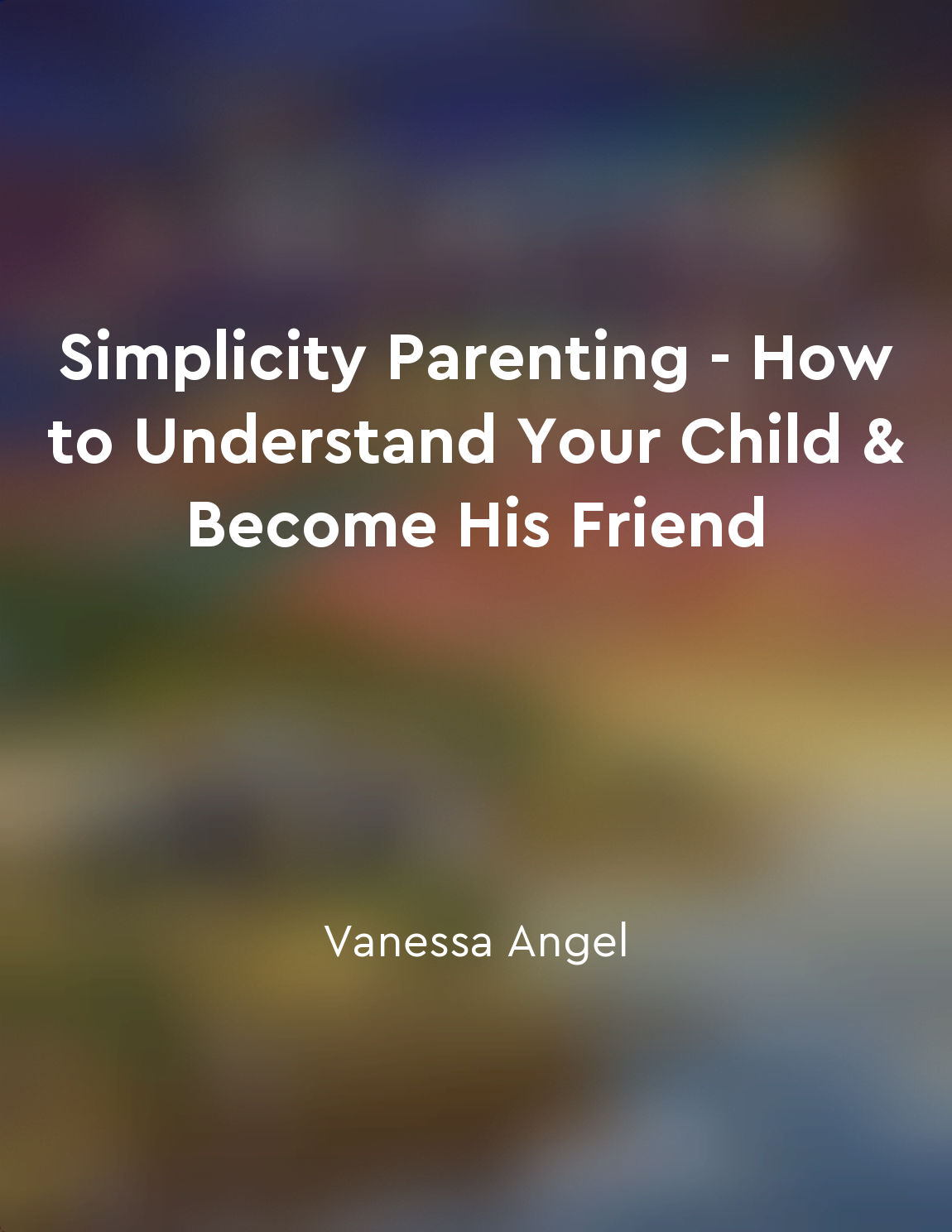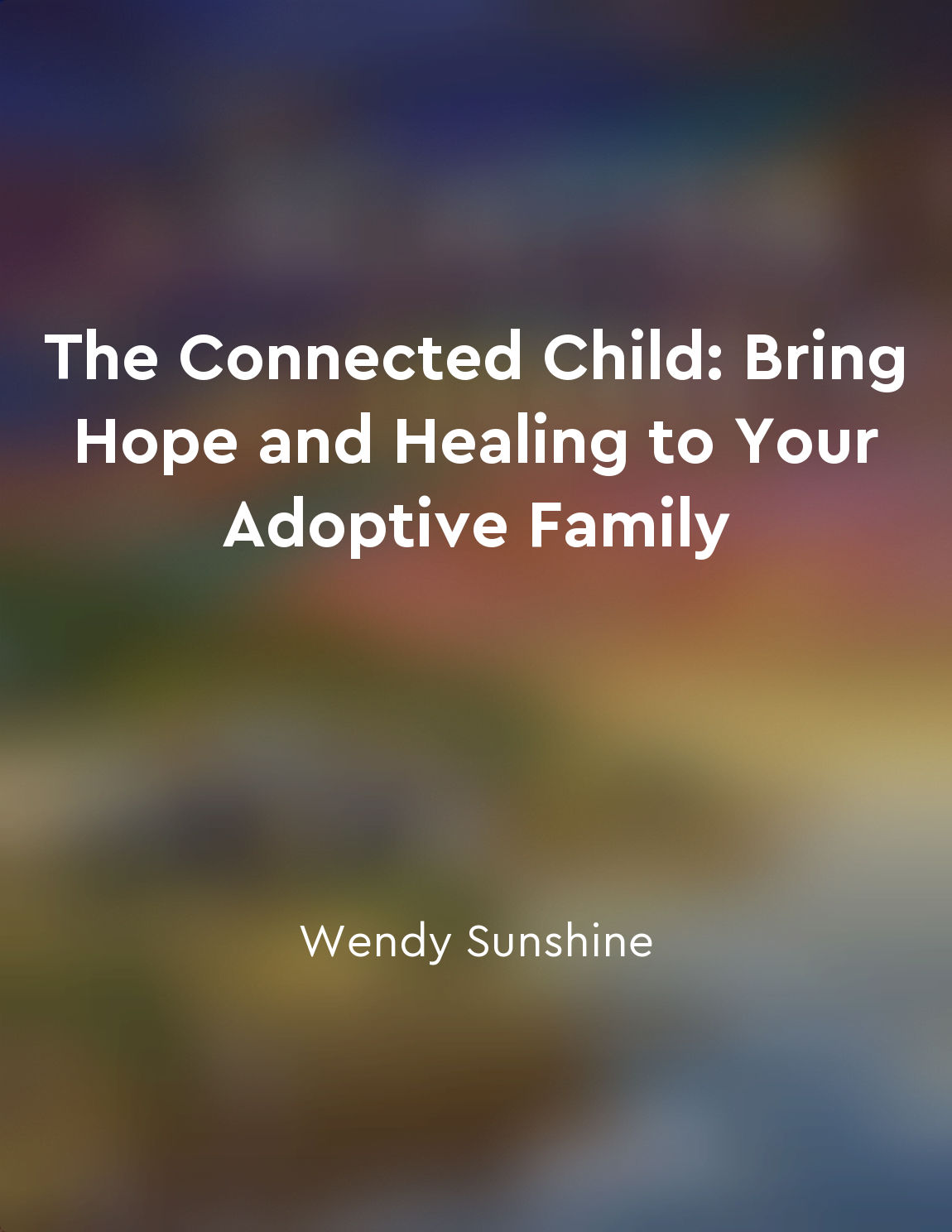Communication is key in building relationships from "summary" of The Connected Child: Bring Hope and Healing to Your Adoptive Family by Wendy Sunshine,David Cross,Karyn Purvis
Effective communication plays a crucial role in the formation and maintenance of relationships. When it comes to building connections with our children, communication serves as the cornerstone upon which trust and understanding are established. By engaging in open and honest dialogue, we create an environment where our children feel safe to express their thoughts, emotions, and needs. Through communication, we show our children that we are present, attentive, and willing to listen, which in turn fosters a sense of security and belonging. Communication is not just about the words we speak; it also encompasses our body language, tone of voice, and overall presence. Nonverbal cues can convey just as much, if not more, than verbal communication. By being attuned to our children's nonverbal signals, we can better understand their underlying feelings and respond in a way that validates their experiences. This level of attunement demonstrates to our children that we are empathetic and emotionally available, laying the foundation for a strong and trusting relationship. In addition to listening and observing, effective communication also involves articulating our own thoughts and feelings in a clear and respectful manner. By expressing ourselves openly and honestly, we model healthy communication patterns for our children to emulate. This sets the stage for them to learn how to communicate their own needs and boundaries in a constructive way, ultimately strengthening the bond between parent and child. Moreover, communication is a two-way street that requires active engagement from both parties. It involves not only speaking and listening but also seeking to understand and validate each other's perspectives. By engaging in reciprocal communication, we demonstrate our willingness to meet our children where they are and work together to find common ground. This collaborative approach fosters mutual respect and cooperation, laying the groundwork for a harmonious and connected relationship.- Communication serves as the primary means through which we connect with our children on a deeper level. By fostering open, honest, and empathetic communication, we create a nurturing environment where relationships can thrive. Through attentive listening, empathetic responding, and respectful expression, we pave the way for strong, trusting, and lasting connections with our children.
Similar Posts
Trust builds a foundation of warmth in relationships
Trust is like a strong pillar that holds up the structure of a relationship. It is the bedrock upon which the edifice of warmth...
Sexuality is a complex and personal journey
Sexuality is not a one-size-fits-all experience. It is a unique and intricate journey that varies from person to person. Each i...

Foster a deep connection through physical touch
To foster a deep connection through physical touch is to recognize the power of touch in building a strong bond between parent ...

Parents must model healthy behaviors and relationships for their children
Parents have a tremendous influence on their children, not only in the way they behave themselves, but also in the way they int...
Let natural consequences teach your child lessons
When you allow natural consequences to teach your child lessons, you are giving them an opportunity to learn from their own exp...
Observing children in various situations can provide valuable insights
By observing children in different situations, we can gain valuable insights into their thoughts, feelings, and behaviors. Whet...

Support your child's passions and interests
Encouraging and nurturing your child's passions and interests is essential in fostering their growth and development. By suppor...
Kindness and compassion go a long way in love
In a world where love is often portrayed as grand gestures and sweeping romance, it can be easy to overlook the power of simple...
Avoiding personalizing behavior
The concept of avoiding personalizing behavior is an important one when dealing with difficult people. When someone is behaving...
Encourage children to learn from their mistakes
When children make mistakes, it's important for parents and caregivers to resist the urge to jump in and fix everything for the...


